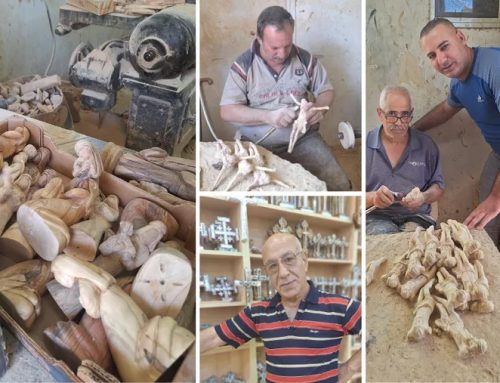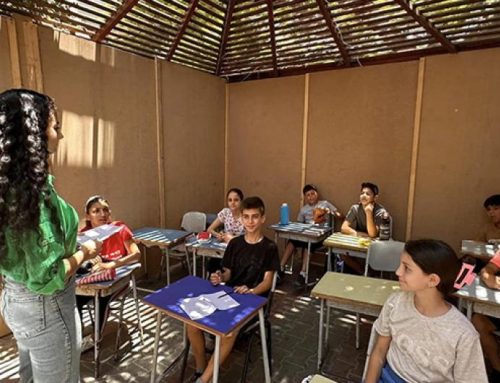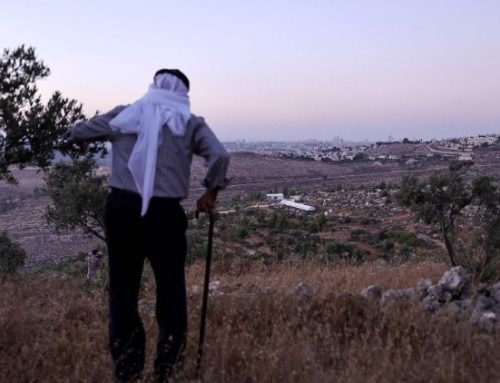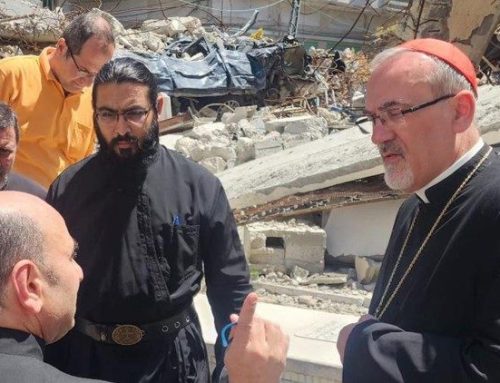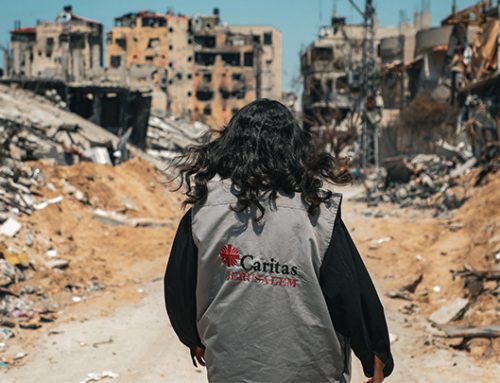INTERVIEW – In August 2017, Archbishop Pierbattista Pizzaballa, Apostolic Administrator of the Latin Patriarchate of Jerusalem, appointed Fr. Yacoub Rafidi as rector of the Latin Patriarchal Seminary in Beit Jala. During an interview with him, Fr. Rafidi spoke about this new experience and the challenges he faces in this mission. He also highlighted his doctoral thesis entitled “Catholic Pilgrimage in the Holy Land (1799 – 1914)”, in which he defended at the Pontifical Gregorian University in Rome in November 2017.
In what frame of mind did you receive your appointment for this new mission entrusted to you?
At first, I was in awe of the immense responsibility, but at the same time I was full of obedience and trust. Obedience has always been a source of absolute joy and comfort over the years of my priesthood. And trust; it stems from God, who called me and wouldn’t abandon me in this mission. He works with and through me and through others who carry this responsibility. God always shows us great paths and following them is the key to success.
What does it mean to be the rector of the Latin Patriarchal Seminary in Beit Jala?
It means a lot for me! Being the rector is a big responsibility, as the seminary is the beating heart of the diocese, and the trust I have been granted is immense and so my hope goes to One who will strengthen me: “My grace is sufficient for you” (2 Corinthians 12:9).
It’s important to highlight that the seminary doesn’t solely depend on individuals, but depends on the collaboration and cooperation of the community and especially the priests’ council in the seminary. Thus, the mission of the rector is to create an environment where everyone feels like family, and to ensure harmony in order to guarantee an adequate environment for priestly vocation formation.
What are the challenges you encountered since the beginning of your appointment?
There are many challenges. One of them is my long absence from the seminary for 21 years, during which I spent my time serving in the various parishes of the Patriarchate and studying in Rome. I was impressed to see major changes at the seminary on different levels, and the responsibility to continue the mission of my predecessors. There is also the question: what qualities should a priest have? And that sets a new challenge and great responsibility and at the same time it invites us to benefit from the rich heritage and to use the new tools to nurture the vocations to love God and others and to be witnesses of the Bible in word and deed to ensure a strong presence of Christ in His church today.
Can you talk about the numbers of the students and the vocation at the seminary?
There are 36 students at the Latin Patriarchal Minor Seminary, and 22 in the Major Seminary. 11 students joined the Major Seminary after studying in the Minor, while another 11 students joined it after finishing school studies or working.
We always thank God for the grace of vocations in the diocese, which require our constant attention and care. This year, we are delighted to have 5 priestly ordinations coming from all parts of the diocese. Currently, there are two priests in charge of vocations; Fr. Johny Bahbah in Jordan and Fr. Bashar Fawadleh in Palestine and Israel.
You defended your doctoral thesis at the Pontifical Gregorian University in Rome in November 2017. Would you tell us about your study and the subject of this thesis?
I had studied at the Pontifical Gregorian University in Rome for 5 years, where I obtained a bachelor, a master and a doctorate in Church History. On November 15, 2017, I defended my doctoral thesis entitled “Catholic Pilgrimage in the Holy Land (1799 – 1914). A historical analysis, from rebirth to its development in the heart of the Church in Jerusalem.”
The study is comprised of two parts. Firstly, it follows the history of the Catholic Pilgrimage in the Holy Land between 1799 and 1914. This was a pivotal era in the religious and political history of Palestine and its openness to the world. In this period, the local Church played a remarkable role in revitalizing pilgrimages, especially after the re-establishment of the Latin Patriarchate in 1847. It also helped the different religious communities to come to Jerusalem and the Holy Land, and it built pilgrims’ hotels that attracted thousands of people who loved to visit the Holy Places and to walk in the footsteps of Christ.
In the second part of the thesis, I tried to highlight the reciprocal relationship and the mutual influence between the Catholic Pilgrimage and the Mother Church as well as the pilgrims and the local Christians. A focus point was also made on the pilgrim’s experience and his or her encounter in the Holy Land with the Holy Places, the geography of Salvation, the local church, the eastern churches and the faithful of other religions.
In this study, I spoke about the crucial role that the Church of Jerusalem played regarding the reception of pilgrims, free hospitality and the spiritual accompaniment in the Holy Places. During pilgrimage the Mother Church welcomes and listens to pilgrims who are her guests, expressing its Catholic spirit, while pilgrims express their appreciation towards the Mother Church through moral and financial support.
Interview conducted by Saher Kawas
Source: Latin Patriarchate of Jerusalem


